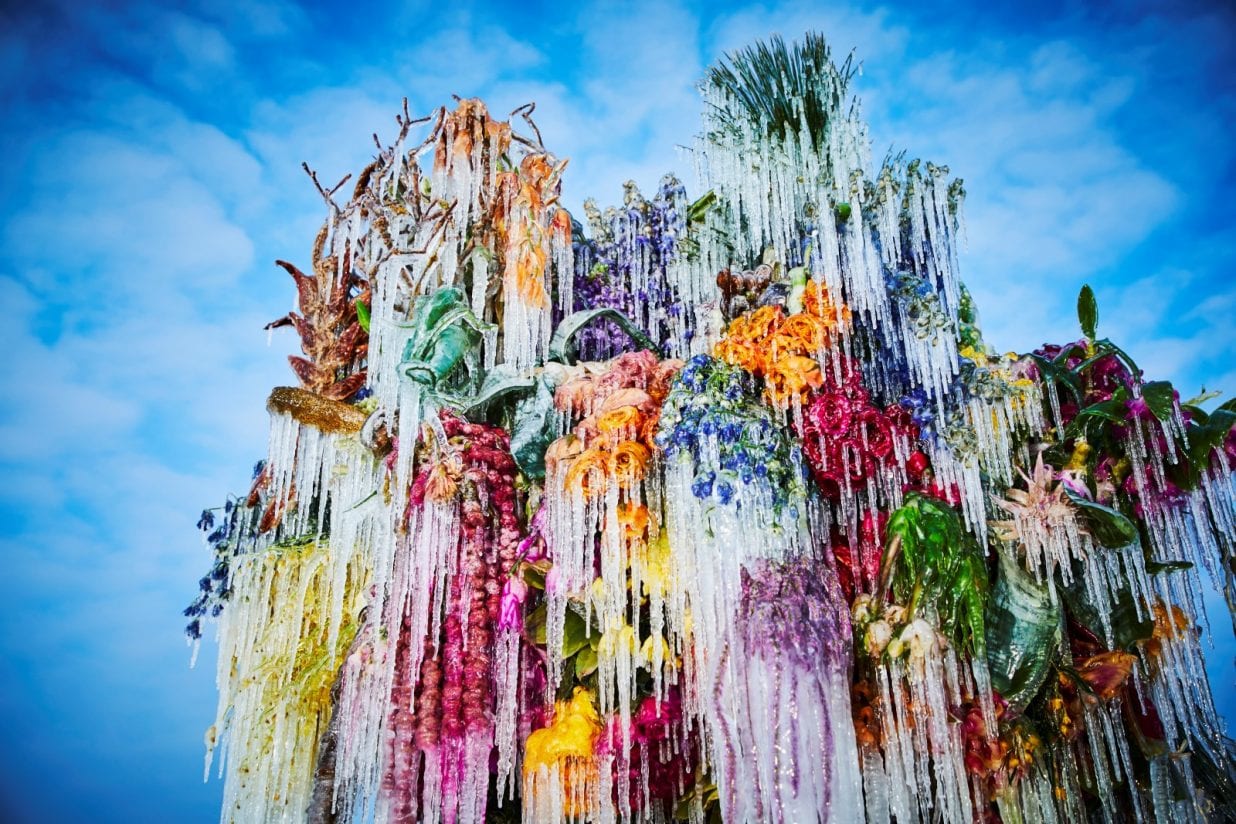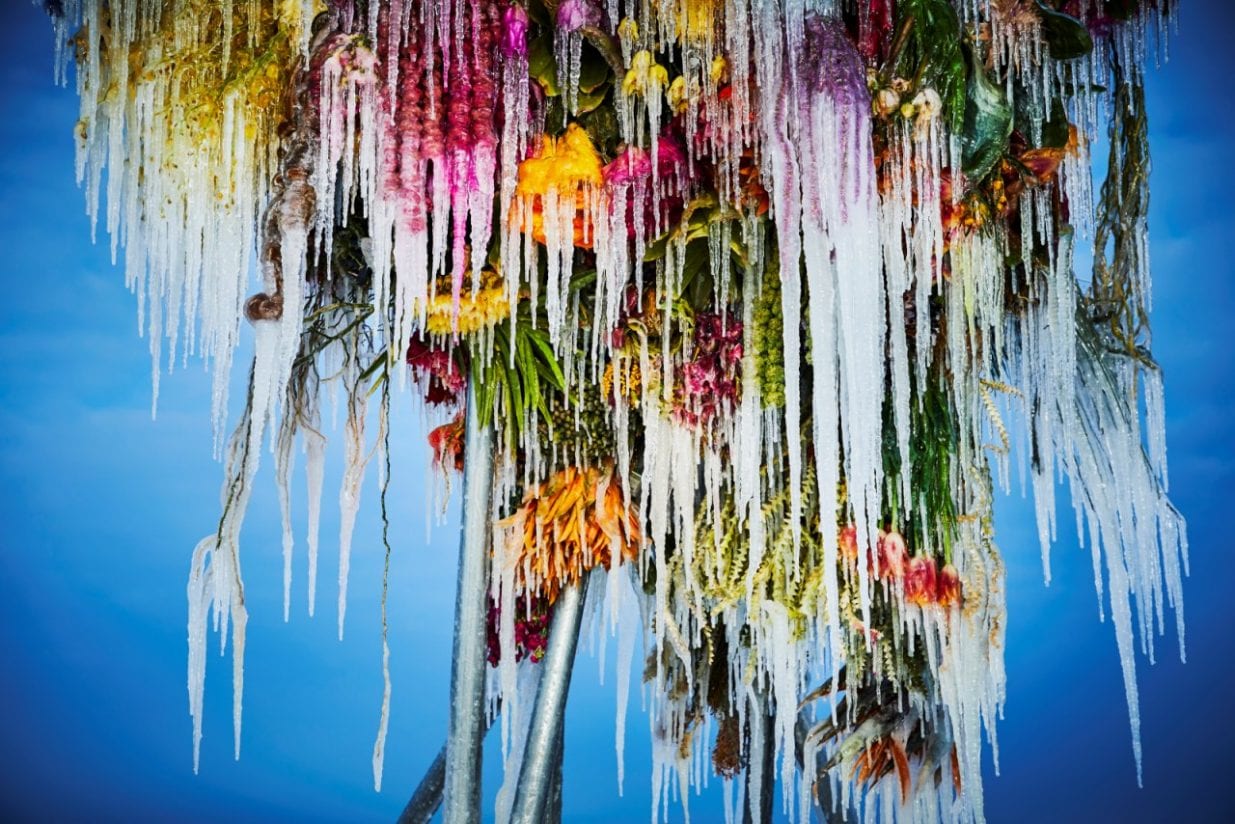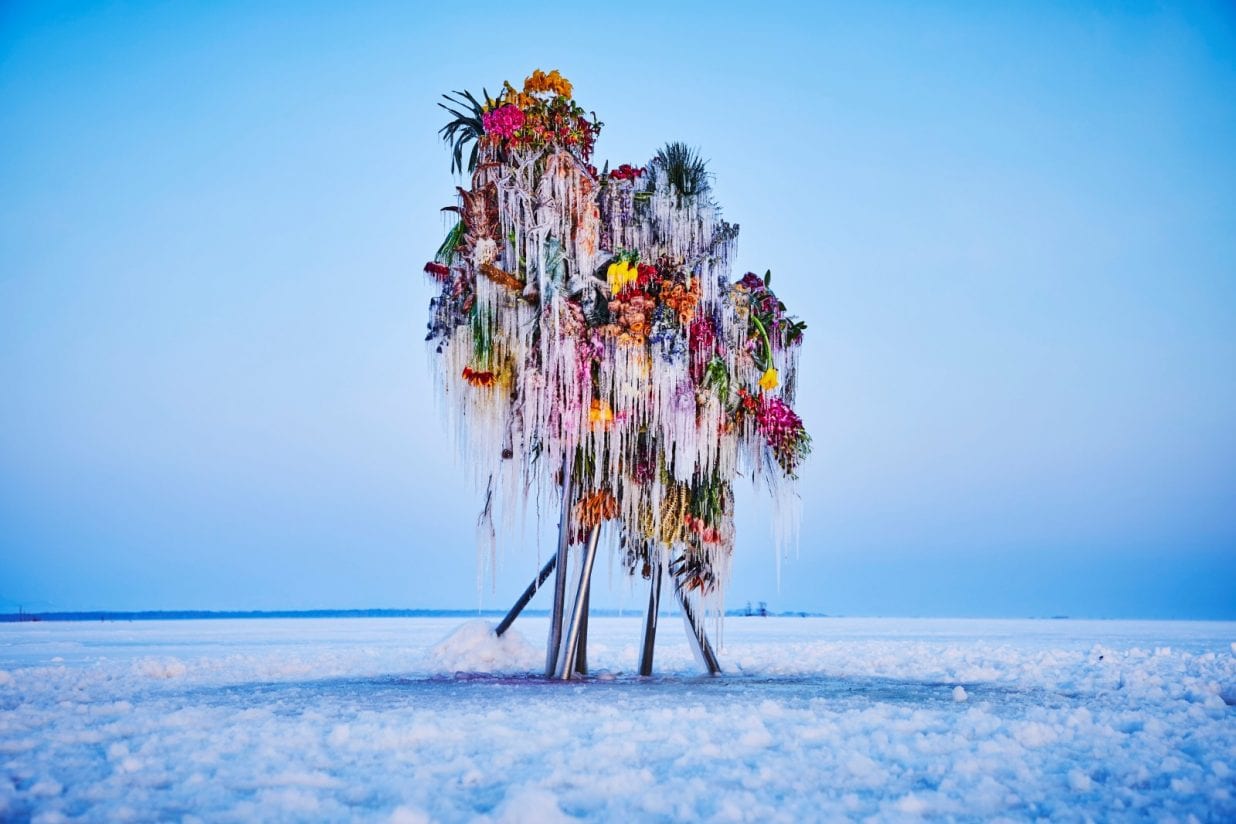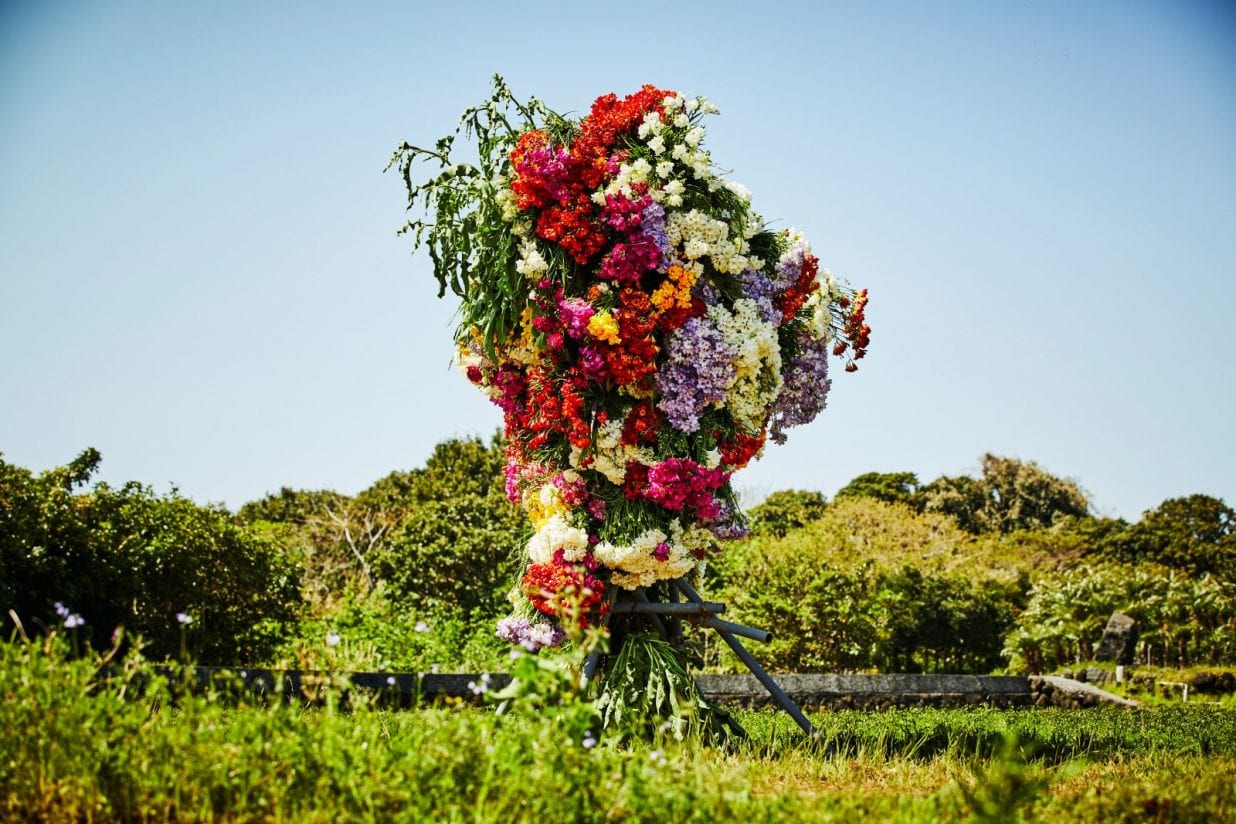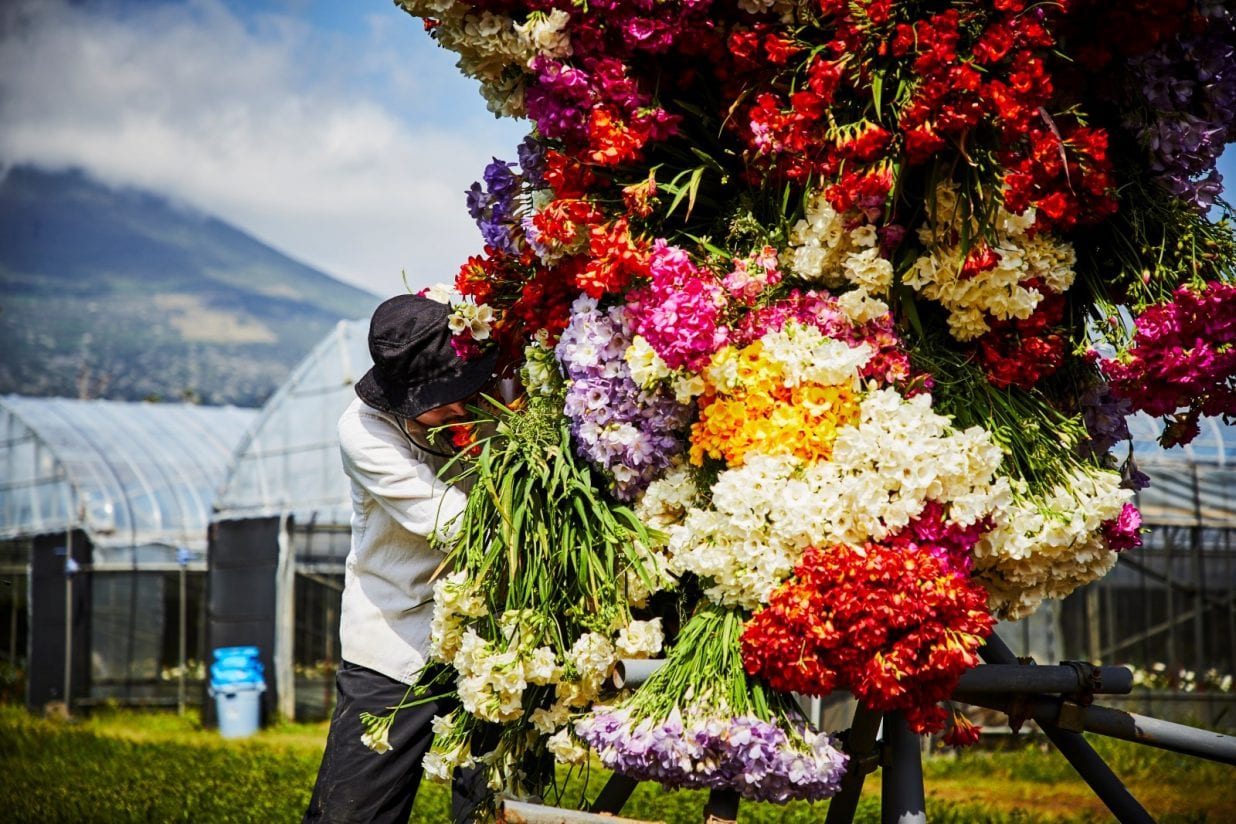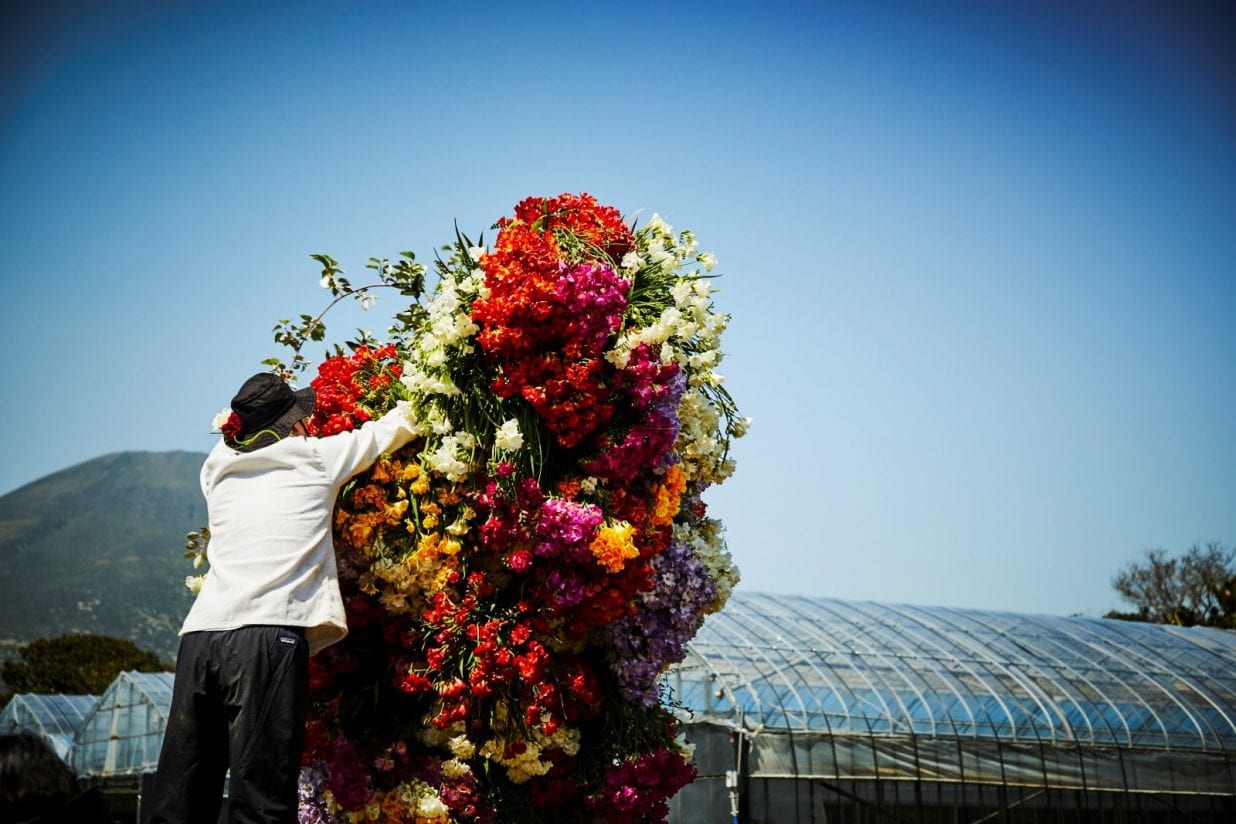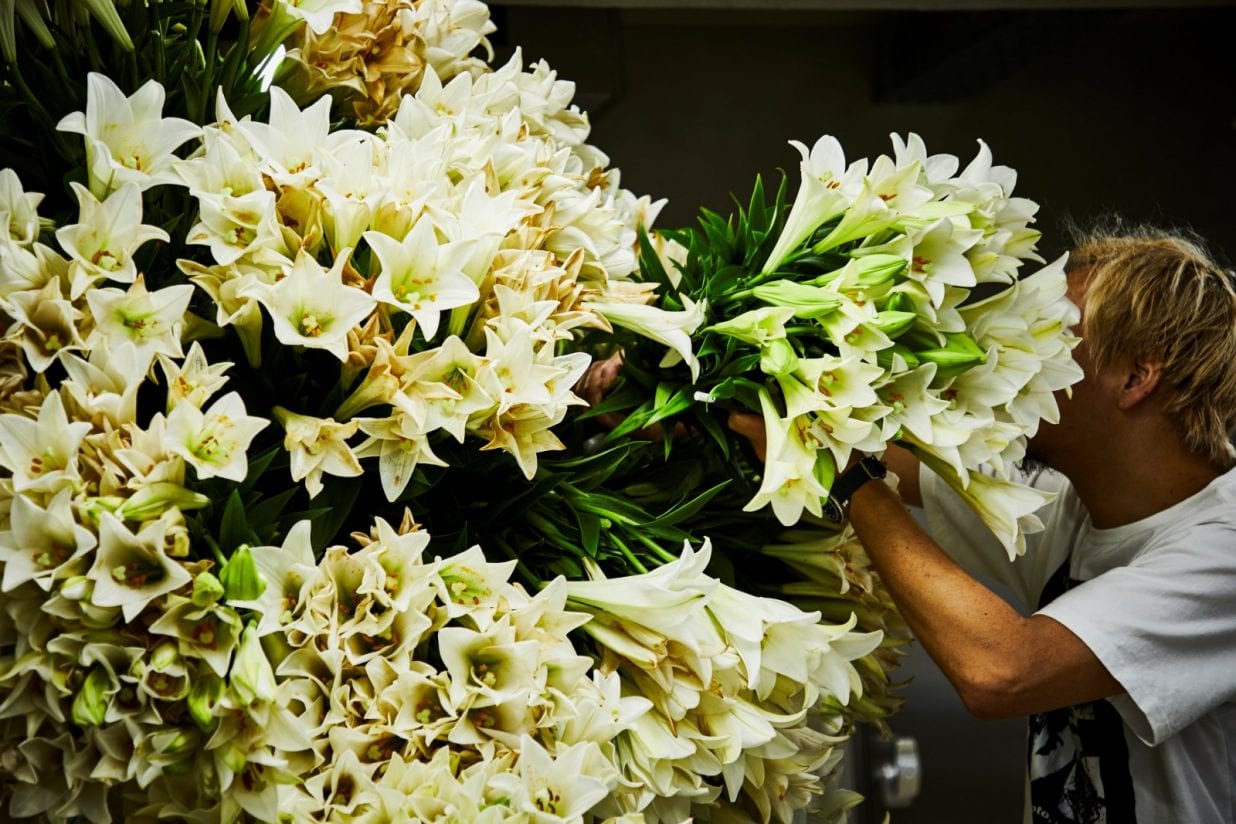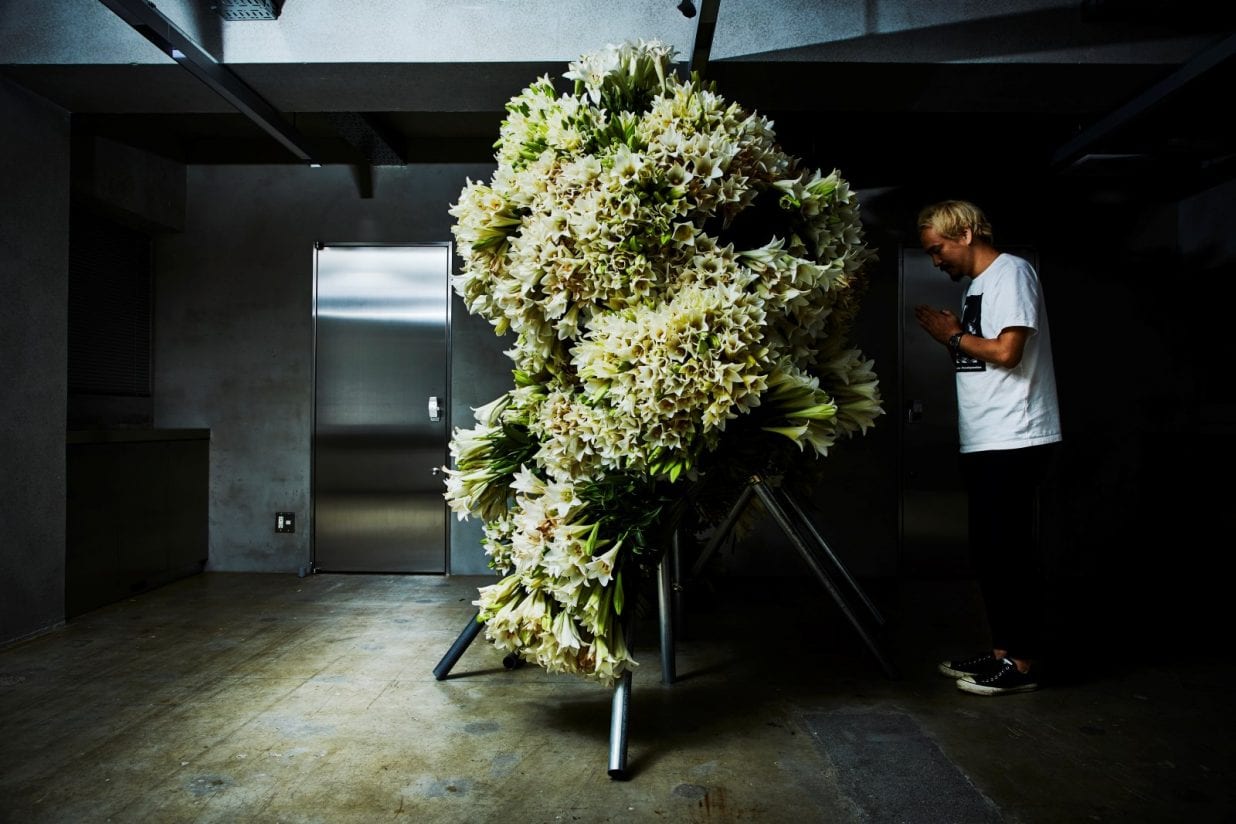Makoto Azuma Styles Eternal Experiences with Flowers
Flowers are ethereal in their beauty but are ephemeral in their purpose. It is the lives and the beauty of flowers that artist Makoto Azuma and his group AMKK (Makoto Azuma, Flower Tree Research Institute) works on to create experiences that are everlasting.
Flowers bestow our lives, if fleetingly, with happiness and colour. Flower artist, Makoto Azuma formed AMKk, a group that develops experimental creations on the theme of flowers and plants consistent with increasing the existential value of plants by finding the most mysterious shape, converting it to an artistic level, and completely elevating the experience.
Born in 1976, Makoto Azuma has worked with flowers since 2002, and he has set up an haute couture flower shop “JARDINS des FLEURS” in Ginza, Japan. From around 2005, in addition to these activities as a flower shop, he pursued the possibility of expression by plants and started dabbling in sculpture expressions, which created a furor in attention and admiration from across the seas. Starting with a solo exhibition in New York, he has exhibited many experimental works in Paris and Dusseldorf, and in 2009 he launched the experimental plant group “Toshin, Flower Tree Research Institute (AMKK) ” in Milan, Belgium, and Shanghai. His latest floral installation in Hokkaido, Japan is Frozen Flowers, a huge installation of flowers that stands frozen in time and memory.
Explaining the purpose and the experimentation, Azuma says, “For Frozen Flowers, I pursued how flowers which were covered with numberless icicles changed their colours within ice. I sought out fresh flowers covered with ice and showed their expression at a snowfield with below freezing point where fresh flowers would never exist.”
The Frozen Flower installation seems like a sculpture that as it burst out in colours of beauty, froze in the process. Standing tall on an ice-covered field, it is a sight that seems almost ethereal.
SCALE engages Azuma in a conversation on flowers and the levels of experimentation that is of an entirely new level of sophistication.
SCALE: How and when did you begin working with flowers?
MAKOTO AZUMA: I started to connect directly with flowers when I was working at a flower shop as a part-time job while I was a musician and belonged to a band. That was when I first encountered the beauty of plants, but at the same time, I also noticed there were things in common between music and plants. Both of them are instantaneous and each one of the flower or musical notes has a different experience that is unique to itself. Just like the way different expressions of “red roses” exist, a sound will be different depending on the state of mind of a player or how it is created. It is the same process for how we unify to express music and flowers.
SCALE: How difficult is it to come up with new themes while creating art with flowers?
MAKOTO AZUMA: I have always worked with fresh flowers. My inspiration to create artworks always comes from flowers themselves. Instead of searching for a way of expression, I appreciate meeting flowers, silently standing face to face with them, and listening carefully to their voice. I have always dealt with flowers hence I never think of it as easy or difficult but as a way of exploration. Creating a work starts from thinking about how to show which expression of flowers.
SCALE: Which is the most interesting work of yours that seems to have connected well with the public?
MAKOTO AZUMA: I constantly seek aspects of flowers that no one has ever seen and continue to pursue these mysterious aspects. I do not create artwork based on the criteria of whether it connects well with the public. It is up to the public as to how they react to my work and how the viewers perceive it. I would be happy that by looking at my artwork, people feel something and it becomes a reason for them to start thinking deeper. I feel each work of mine has some deeper connection with the viewer and each work is seen differently depending on who sees it and when.
SCALE: How important is it to keep bringing out such work that brings put positive vibes during the pandemic?
MAKOTO AZUMA: Even under such circumstances, or rather because we are faced with such difficult times, it made us realize people do need flowers. We are restricted on the freedom of action and our opportunities to interact with others are taken away. During these days of stress from many aspects, hearts are healed by seasonal changes which colour our daily lives and through expressions of nature that exist close to them. Flowers have the power to brighten the human mind, encourage people, and calm our feelings. I feel this situation makes many people realize such a simple thing. As a person who deals with flowers every day, I feel it is my mission to restore them and continue my best to utilise such aspects of flowers to as many people as possible.
SCALE: What is the science and the philosophy behind frozen flowers?
MAKOTO AZUMA: When I create something, the most important thing is that I always think about the relationship between a human being and flowers/plants. Flowers are already known to be an existence of beauty when they are in nature. Therefore, if people decide to take them away from their natural habitat, I always keep in mind that my work should not be an imitation of nature. I must create different expressions of beauty. This also shows my respect for nature.
SCALE: Which are the themes that you would like to work upon if you had an installation in the desert country?
MAKOTO AZUMA: I find it very interesting to create a gigantic flower arrangement or artwork of trees at the dessert which is the environment where plants are almost non-existent. In the colourless world with brown sand overspread, and in the midst of overblowing sandstorm, I would like to see how flowers change their colour expression and appearance of shapes, bring out the phenomenon under such conditions, and try to create an artwork with the unknown beauty of flowers.
Image courtesy: ©Shunsuke Shiinoki / AMKK @shiinokishunsuke


